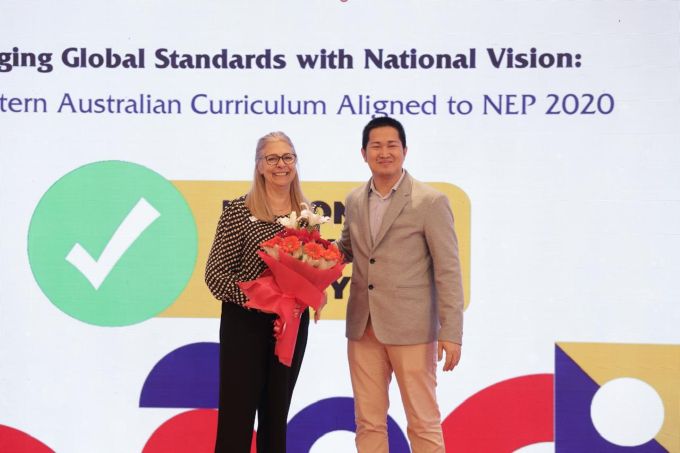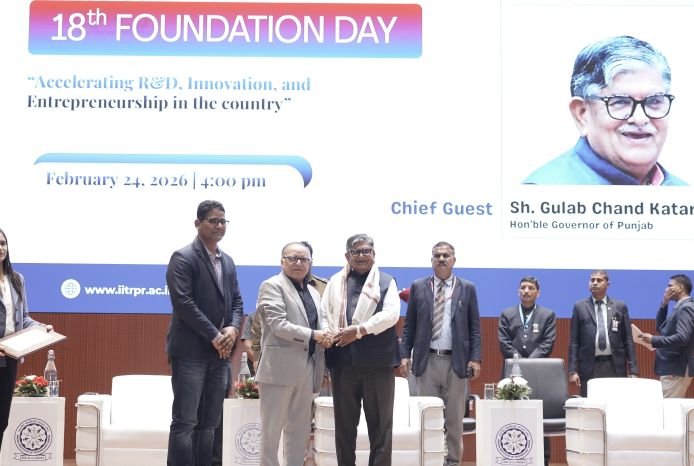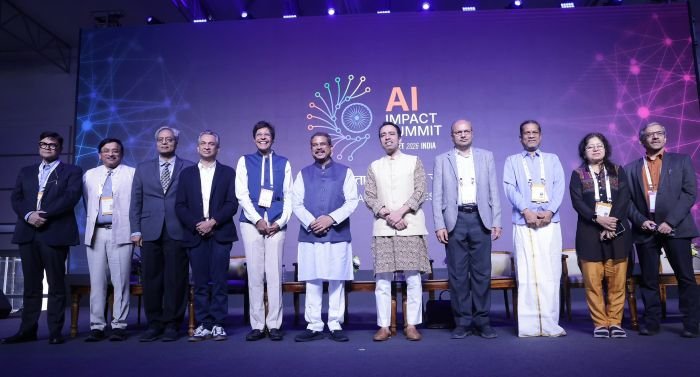
In a landmark step towards redefining learning pathways for Indian school students, Western Australian Certification International (WACInternational), in partnership with the School Curriculum and Standards Authority (SCSA) International, convened a day-long education conference in New Delhi to explore how the Western Australian Curriculum (K–10) and the Western Australian Certificate of Education (WACE) can be integrated within the framework of India’s National Education Policy (NEP) 2020.
The event brought together senior education policymakers, academic experts, and school leaders from various schools here in India. George Thiveos, Minister Counsellor (Education and Research), Australian High Commission, New Delhi; Ms Jodie Matthews, Principal Consultant – International Education, Department of Education, Western Australia; and Sh Ashok Ganguly, Former Chairman, Central Board of Secondary Education (CBSE) were distinguished keynote speakers for the event.
The Western Australian Curriculum was introduced at the conference as a framework known for its conceptual depth, academic rigour, and emphasis on critical thinking, problem-solving, and collaboration—values deeply embedded in NEP 2020. The event signaled more than a collaboration; it was a meeting point of two progressive education philosophies—Australia’s focus on inquiry-driven learning and India’s vision of competency-based, holistic schooling for a new generation.
The conference also featured panel discussions where experts debated the potential of introducing best practices from international curricula into Indian classrooms. The conversations focused on outcome-based learning, competency-driven assessments, and multidisciplinary approaches that go beyond traditional rote learning. One panel highlighted the transformative role of teacher training and capacity building, stressing that while curricula provide structure, it is teachers who inspire curiosity, creativity, and problem-solving abilities among students.
Speakers highlighted how it nurtures critical thinking, problem-solving, communication, and collaboration—values also embedded in NEP 2020. The discussions then moved to the Western Australian Certificate of Education (WACE), an internationally recognised senior secondary qualification already granted equivalence by the Association of Indian Universities (AIU). This recognition enables Indian students who complete WACE to seamlessly pursue higher education in India as well as at leading universities across the world, a dual advantage that drew strong interest from school leaders.
During the keynote address, George Thiveos emphasized the significance of cross-border collaboration in shaping future-ready education, he said: “The rollout of Western Australia’s school curriculum and initiative that not only strengthens the choices available to students and families, but also reflects the growing trust and cooperation between our two nations in the field of their education. This initiative benefits Indians by making international curriculum available locally. Students gain early exposure to global standards of learning without the need to leave their home country.”
Adding an Indian perspective, Ashok Ganguly spoke about the compatibility between global education models and NEP 2020. He observed, “the compatibility between global education models and NEP 2020. The policy reforms introduced under NEP 2020 set the stage for significant innovation in Indian schooling. By blending proven international curricula with India’s academic ethos, we can raise standards, encourage creative teaching, and build a truly world-class education system”.
Jodie Matthews highlighted the practical value of integrating the Western Australian Curriculum into Indian schools. She said, “The Government of Western Australia School Curriculum and Standards Authority’s international education program involves working with partners to identify, approve and support overseas schools to implement the Western Australian Kindergarten to Year 12 curriculum. The Western Australian Curriculum is recognised by universities in Australia and leading universities around the world. In delivering the Western Australian Curriculum, which has a focus on academic rigour, student wellbeing and future-ready skills, our partner schools in India will provide opportunities for their students to become global citizens”
WACI, founded by Pidet Sen and Seyduddin, is the authorised associate of SCSA in India. With decades of experience facilitating schools across 21 countries to deliver the Western Australian Certificate of Education (WACE), the organisation is looking forward to expand to high-quality international education to Indian students. WACE, a senior secondary qualification, is already recognised by the Association of Indian Universities (AIU). This recognition allows Indian students completing WACE to seamlessly pursue higher studies in India or at top universities around the globe—bringing global opportunities to their doorstep. With WACE’s AIU recognition and NEP 2020’s progressive framework, Indian schools are poised to offer global qualifications without compromising national priorities. Several participants expressed interest in pilot programs and phased integration, signalling the start of a new era of cross-cultural academic exchange.








